The Last of Us is a sprawling, emotional epic that captures the game’s spirit while expanding on the narrative in surprising and rewarding ways.
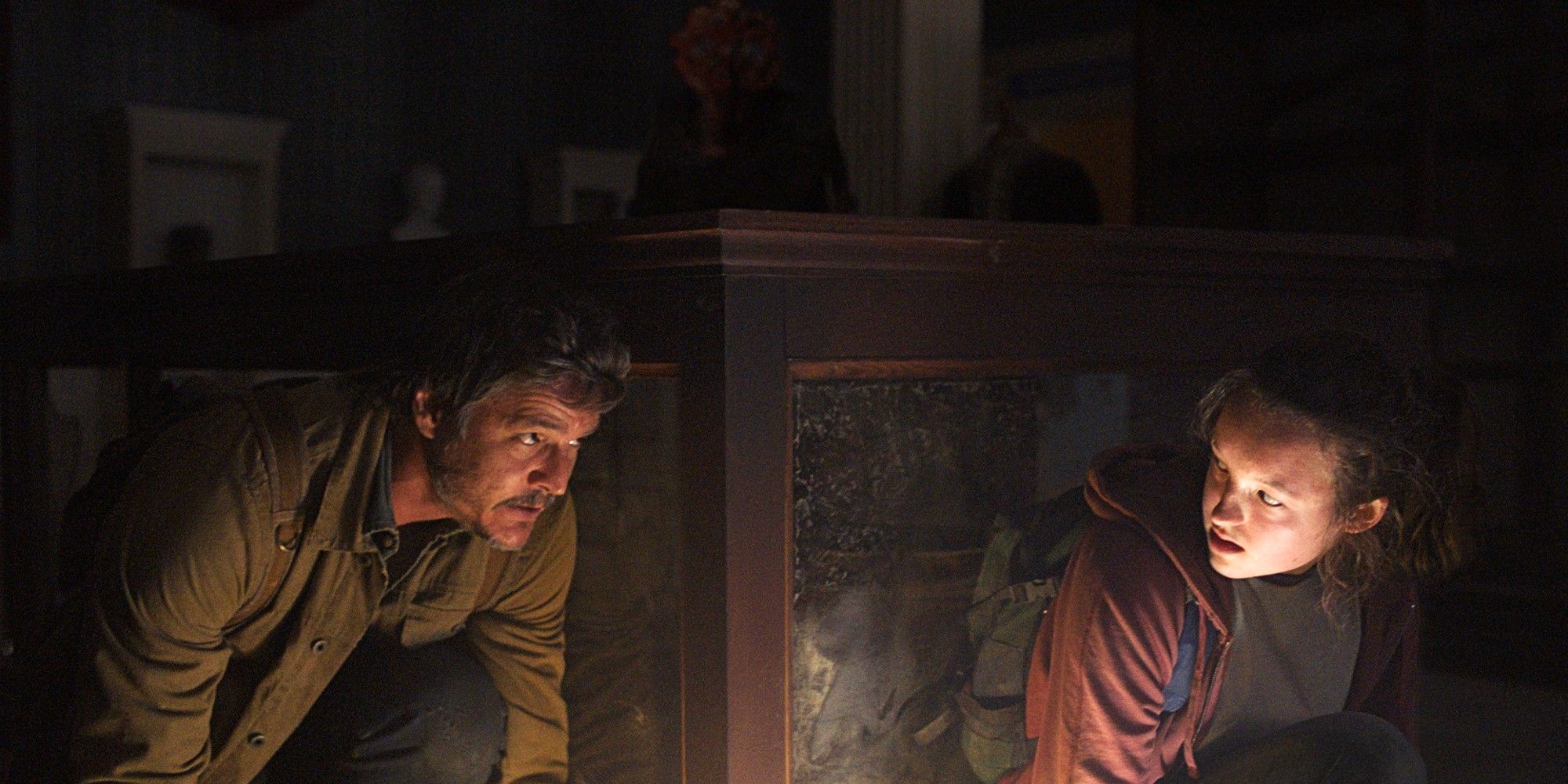
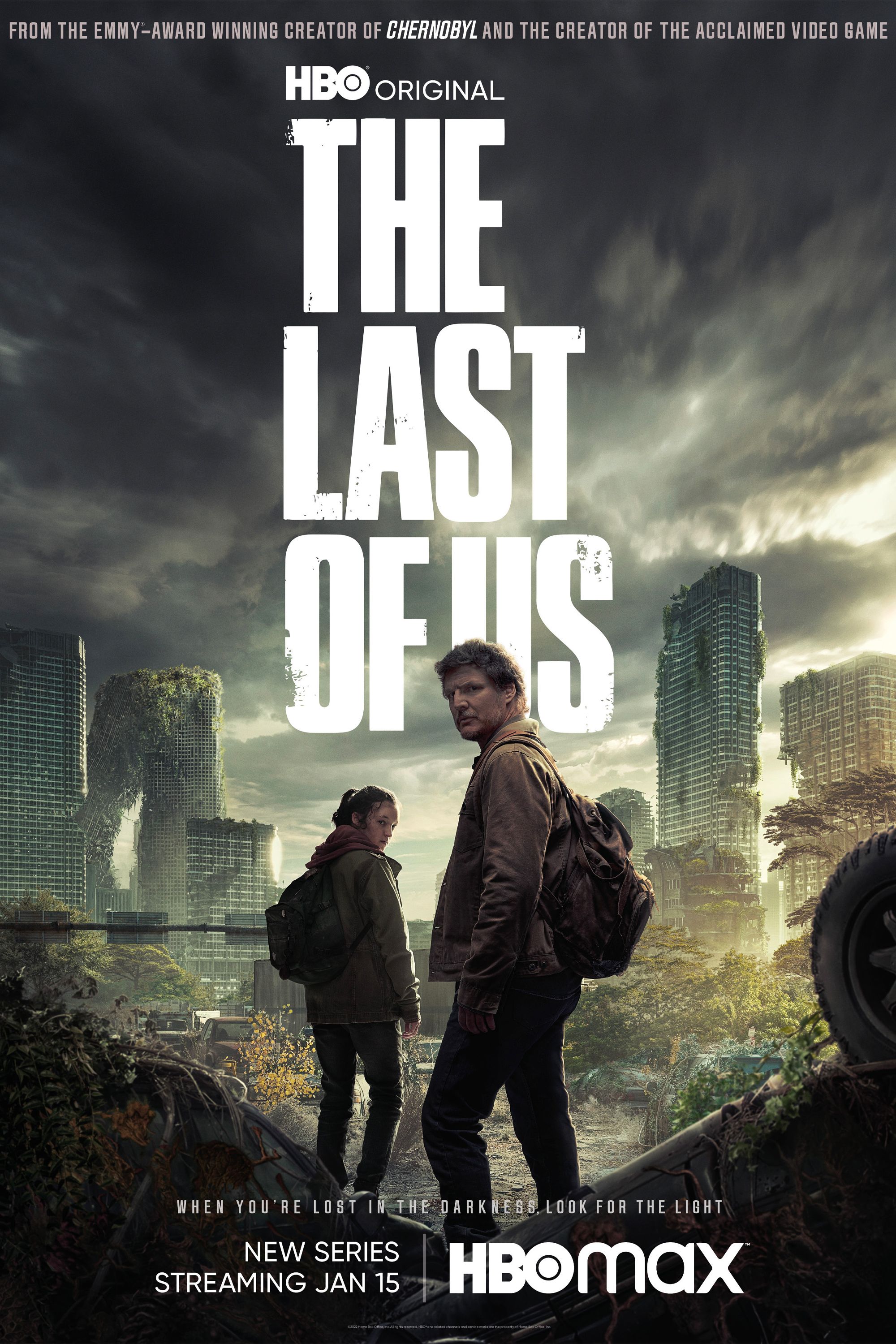
Video games may have become more cinematic as the medium has evolved, but adaptations rarely capture the same feeling that their source material does. When The Last of Us debuted on the Playstation 3 in 2013, the game received critical acclaim, and calls for a live-action version began immediately. Its story seemed more suited than most — at its core, The Last of Us is about grief, moving on in the face of it, and the bond between a grieving father and a young girl just as lost as he is. Its post-apocalyptic backdrop is just the setting against which this deeply affecting story is told. After a movie was (thankfully) canceled, HBO decided to adapt the first game into a nine-episode season, and it’s all the better for it. The Last of Us is a sprawling, emotional epic that captures the game’s spirit while expanding on the narrative in surprising and rewarding ways. It gets off to a slow start, but once the series commits to its vision (and allows itself to have a little fun), The Last of Us can be as beautiful and devastating as the game that preceded it.
The Last of Us follows Joel (Pedro Pascal), a jaded resident of the Boston Quarantine Zone who lost his daughter during the Cordyceps outbreak 20 years prior to the main events of the narrative. Joel works as a smuggler with Tess (Anna Torv), bringing pills and other illicit goods into the QZ under the nose of FEDRA, the fascistic military force that has taken the place of the U.S. government. When Joel and Tess are tasked by resistance leader Marlene (Merle Dandridge, who also voiced Marlene in the games) to escort a foul-mouthed and feisty young girl named Ellie (Bella Ramsey) out of the quarantine zone, a simple job becomes a fight for the fate of humanity.
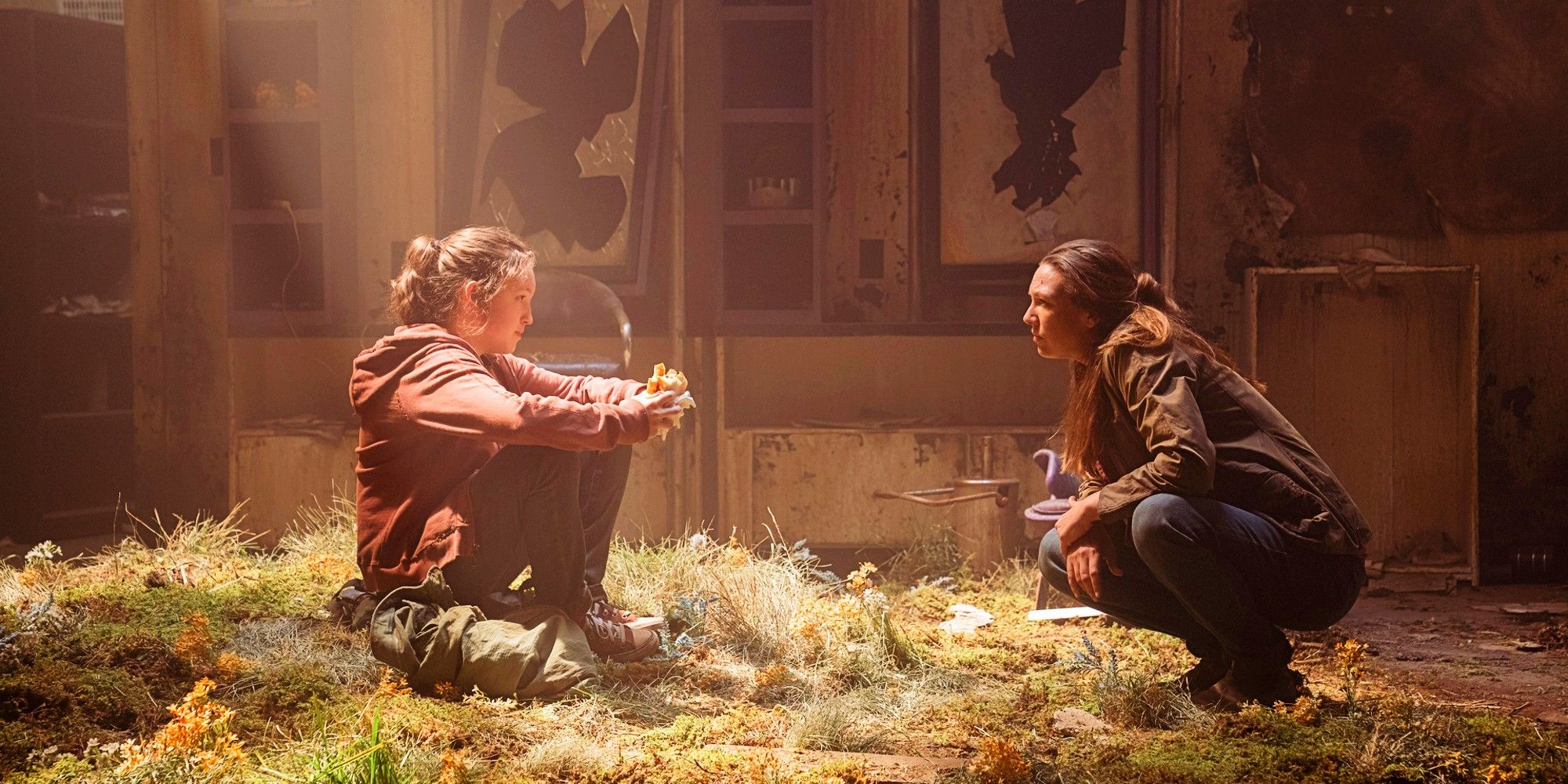
To those unfamiliar with the source material, The Last of Us may look like just another post-apocalyptic zombie show about half a decade too late to the phenomenon started by The Walking Dead. In less capable hands, it isn’t hard to see The Last of Us becoming that (and it almost did in its movie iteration). Fortunately, game creator Neil Druckmann, who is heavily involved in the show, doesn’t let that happen. Along with Craig Mazin (Chernobyl), Druckmann ensures that character work is at the fore of The Last of Us. With a guest cast featuring the likes of Murray Bartlett, Nick Offerman, Melanie Lynskey, Gabriel Luna, Storm Reid, and Rutina Wesley, it would be a sin if it wasn’t.
Lynskey’s appearance as a revolutionary leader in Kansas City (the location standing in for the video game’s Pittsburgh sequence) is a particular highlight as she displays a steely brutality that elicits as many laughs as it does chills. Offerman and Bartlett steal episode 3 as Bill and Frank, proving the worth of an adaptation like this and its ability to expand its scope beyond a linear video game campaign. Late in the season, it is Reid as Riley who packs an emotional wallop while complementing The Last of Us‘ true standout performance from Ramsey.
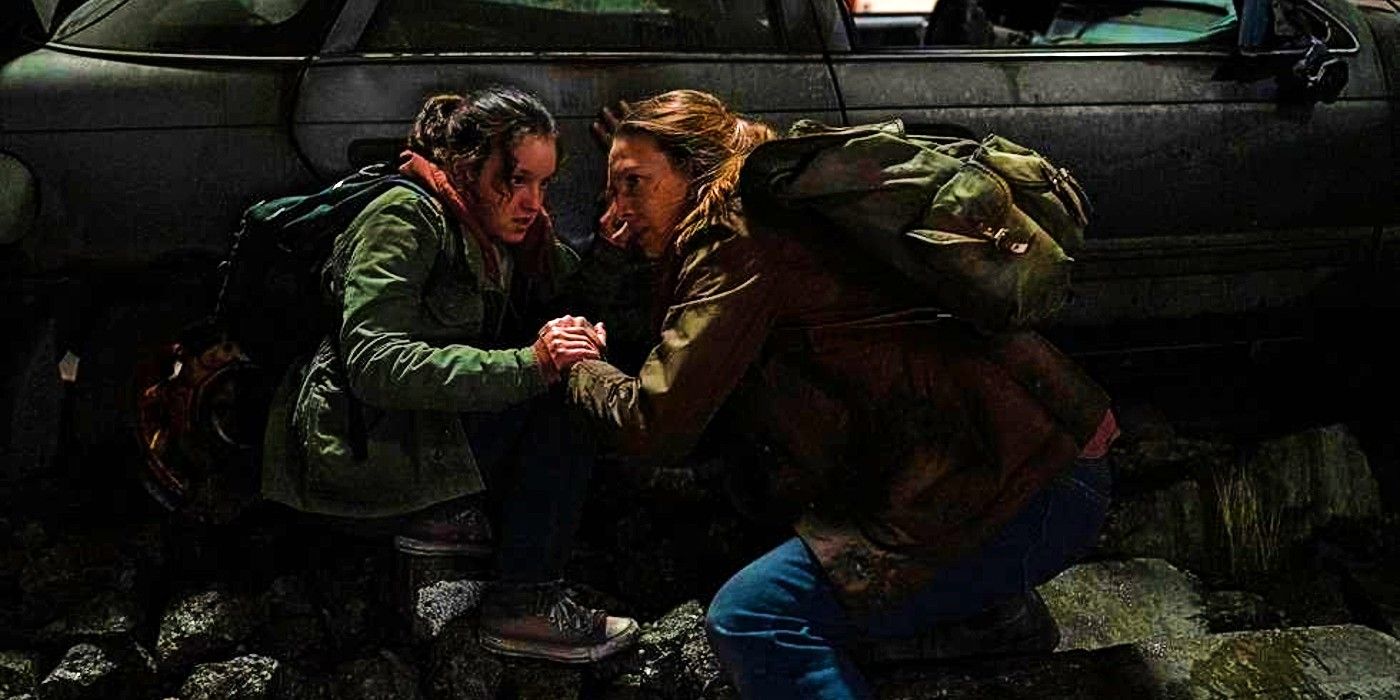
Ellie’s character experiences the most growth and change throughout The Last of Us, an unspoken rule for any teenage girl living in a post-apocalyptic world, especially one who carries a potential cure in her blood. Ramsey may be most remembered for her turn as the pint-sized northerner Lyanna Mormont in Game of Thrones, but recent roles in Catherine Called Birdy and His Dark Materials have teased a range that she puts on full display in The Last of Us. Her dynamic with Pascal’s Joel is both hilarious and heart-wrenching and that’s where the show really soars.
While the audience’s mileage may vary when it comes to the first two episodes, once Joel and Ellie get on the road and The Last of Us expands its scope outside of Boston, the series begins to grow into what the games always promised it could be. Watching Joel and Ellie go from transactional road trip companions to the father-daughter dynamic that propels the latter half of the season to its violent end could only work as well as it does with two performers as capable as Pascal and Ramsey. Who they encounter on the way is just as important, reminding them why they are fighting to live in a world like theirs in the first place.
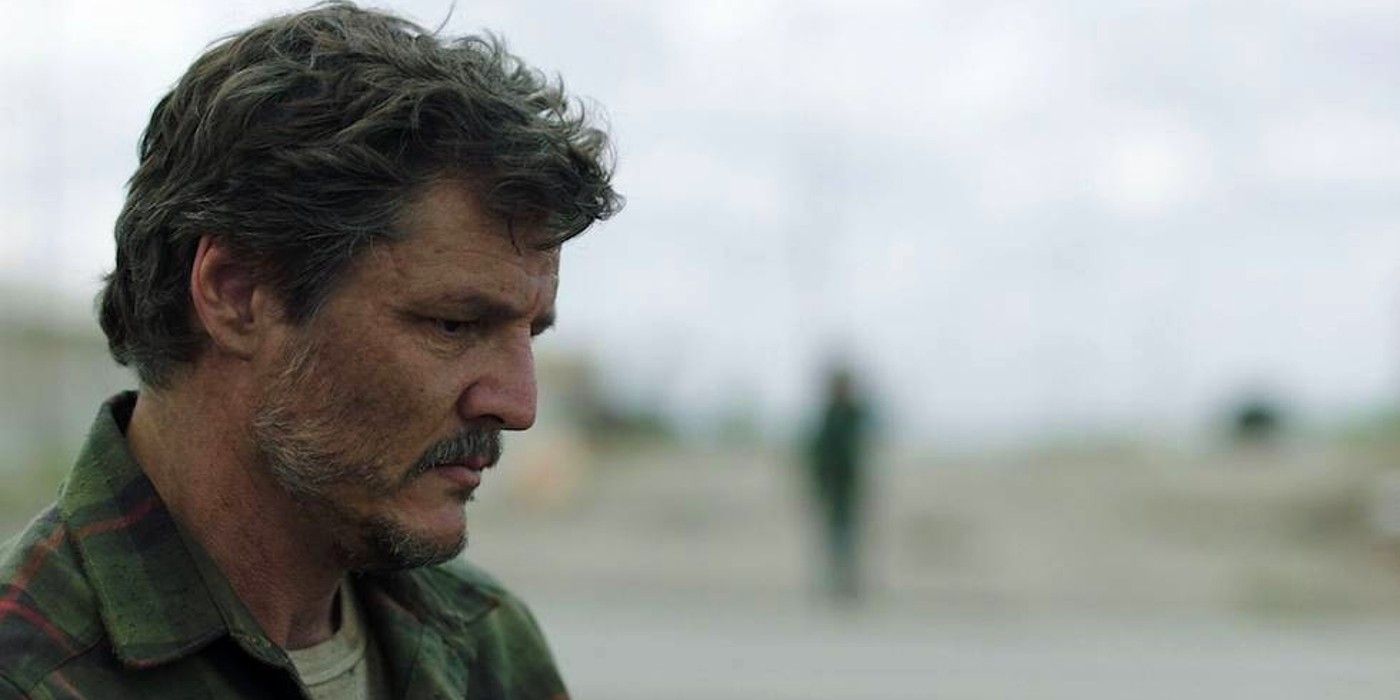
For those devoted to the game, there are plenty of callbacks, direct references, and even lines of dialogue ripped straight from the source material, including a few kills that will put to rest any questions on how to adapt stealth-based video games to live-action. Anyone hoping for a straight-up horror show may find themselves disappointed. While there are a few incredibly tense scenes with infected and clickers (late-stage Cordyceps victims), they are not the focus (and anyone wishing they were has missed the point of the story entirely). The horror people inflict upon each other in the face of insurmountable odds is the focus here, a frequent topic of conversation between Joel and Ellie that culminates in a finale that will be familiar to game fans, but just as heartbreaking nonetheless.
The Last of Us is a towering achievement of the video game medium, having pushed the form in new directions upon its release almost 10 years ago. If anything, video game adaptations have proven that there is no true stand-in for inhabiting a character for 25+ hours over the course of a grueling game experience. One thing HBO’s The Last of Us does prove, however, is that television is the place to do it. Even with its flaws (of which there are only a few), The Last of Us is an excellent adaptation, bolstered by stunning performances from a great cast. The nine episodes (all of which were made available to critics) allow the story to be told to its full extent. Considering how poignant and affecting that story is, that’s all one could hope for.





